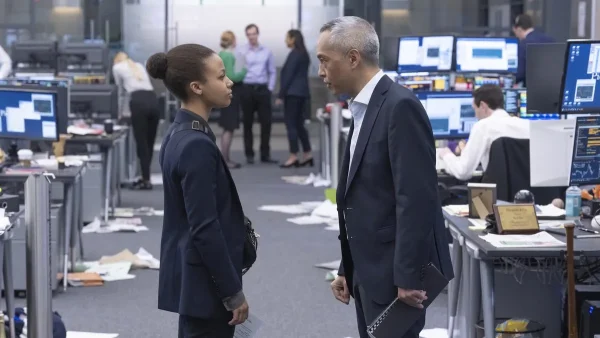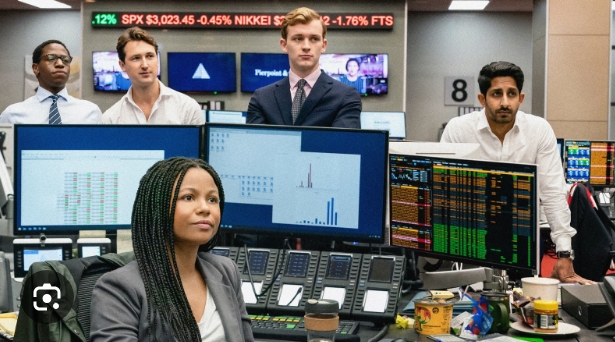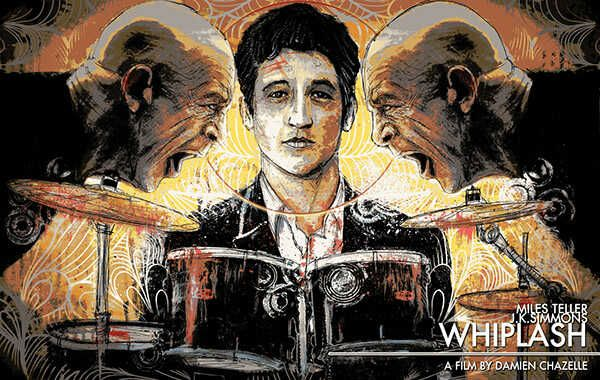Industry (2020-2024), directed by Mickey Down and Konrad Kay, has viewers observing graduates Harper Stern, Hari Dhar, Gus Sackey, Robert Spearing, and Yasmin Kara-Hanani, who are interning to be hired by a top investment bank in London called Pierpoint. The series shows the reality of what happens within the finance industry and how far people will go to succeed. In this essay, the literary criticisms Marxist and psychoanalytic will be used to examine the reality of the investment business.
As interns, their main objective is to impress their higher ups and prove that they deserve a position at Pierpoint. Most work as consultants on the floor, studying the influence of the economy to convince buyers to buy or sell and make the most profit out of them. Harper is located at a desk beside one of Pierpoint’s most experienced salesmen. He influences her to put herself out there and get clients, even if it means stepping on toes. Salesmen are also meant to have good connections with their clients. The interns are taught to conversate rather than get straight into business to easier influence clients. Their relationship and unwritten rules made by salesmen purely shows Marxism, trying to get the most recognition and payout by having ulterior motives and bonding with others to get the most out of it.

On the other side of being an intern – or a worker in general – there is a lot of pressure to make it or induct to a new status. Hari Dhar is the first to suffer from this pressure. Though he works on a higher floor, the pressure is still the same. The desire to not disappoint his managers keeps him awake, working overtime to finish an outline that will be shown to the department managers. Hari glues himself to his desk, drinking 5-hour shots and energy drinks while barely eating real food. But after multiple days working on this outline, he sees that he messed up an important part that cannot be reprinted. This, along with a vulgar message left in the men’s restroom, leads to his heart failing and his life ending. The pressure he felt mentally lead to his death. Even when Gus had told him that staying long hours to finish would do him more harm than good, he was one-track minded. This show continues to show that people in this profession need to have mental stability, or they will crumble.

Viewing Industry though a Marxist and psychoanalytic lens, we come to see how salesmen will do anything to close a deal and gain the glory from it, while suffering the repercussions of it. These two lenses coexist in this show to cause the most suspense with reason, resulting in anxiety about the reality. You can watch the show on HBO Max.







